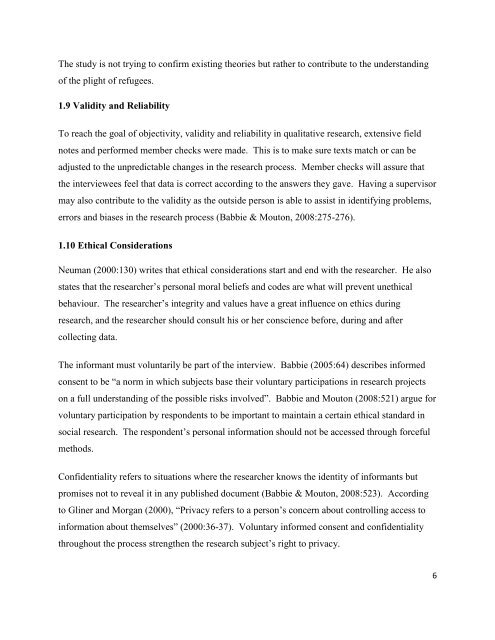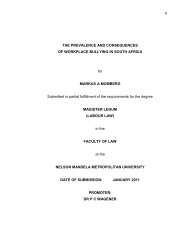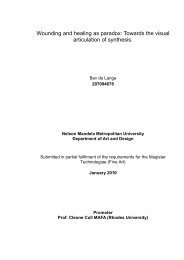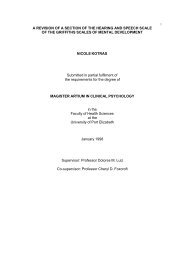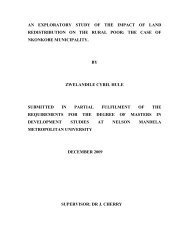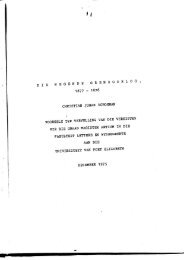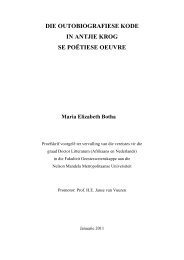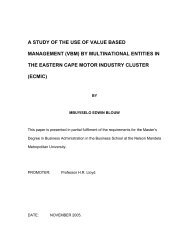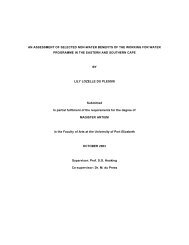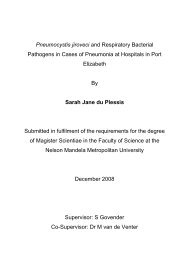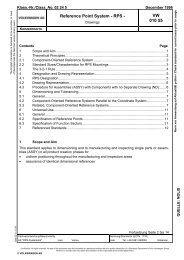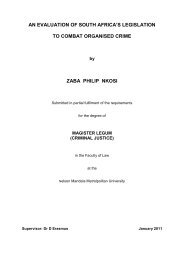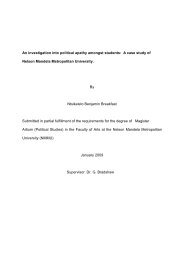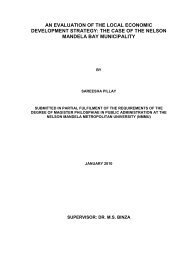Guro Lauvland Bjorknes.pdf - NMMU
Guro Lauvland Bjorknes.pdf - NMMU
Guro Lauvland Bjorknes.pdf - NMMU
You also want an ePaper? Increase the reach of your titles
YUMPU automatically turns print PDFs into web optimized ePapers that Google loves.
The study is not trying to confirm existing theories but rather to contribute to the understanding<br />
of the plight of refugees.<br />
1.9 Validity and Reliability<br />
To reach the goal of objectivity, validity and reliability in qualitative research, extensive field<br />
notes and performed member checks were made. This is to make sure texts match or can be<br />
adjusted to the unpredictable changes in the research process. Member checks will assure that<br />
the interviewees feel that data is correct according to the answers they gave. Having a supervisor<br />
may also contribute to the validity as the outside person is able to assist in identifying problems,<br />
errors and biases in the research process (Babbie & Mouton, 2008:275-276).<br />
1.10 Ethical Considerations<br />
Neuman (2000:130) writes that ethical considerations start and end with the researcher. He also<br />
states that the researcher‟s personal moral beliefs and codes are what will prevent unethical<br />
behaviour. The researcher‟s integrity and values have a great influence on ethics during<br />
research, and the researcher should consult his or her conscience before, during and after<br />
collecting data.<br />
The informant must voluntarily be part of the interview. Babbie (2005:64) describes informed<br />
consent to be “a norm in which subjects base their voluntary participations in research projects<br />
on a full understanding of the possible risks involved”. Babbie and Mouton (2008:521) argue for<br />
voluntary participation by respondents to be important to maintain a certain ethical standard in<br />
social research. The respondent‟s personal information should not be accessed through forceful<br />
methods.<br />
Confidentiality refers to situations where the researcher knows the identity of informants but<br />
promises not to reveal it in any published document (Babbie & Mouton, 2008:523). According<br />
to Gliner and Morgan (2000), “Privacy refers to a person‟s concern about controlling access to<br />
information about themselves” (2000:36-37). Voluntary informed consent and confidentiality<br />
throughout the process strengthen the research subject‟s right to privacy.<br />
6


